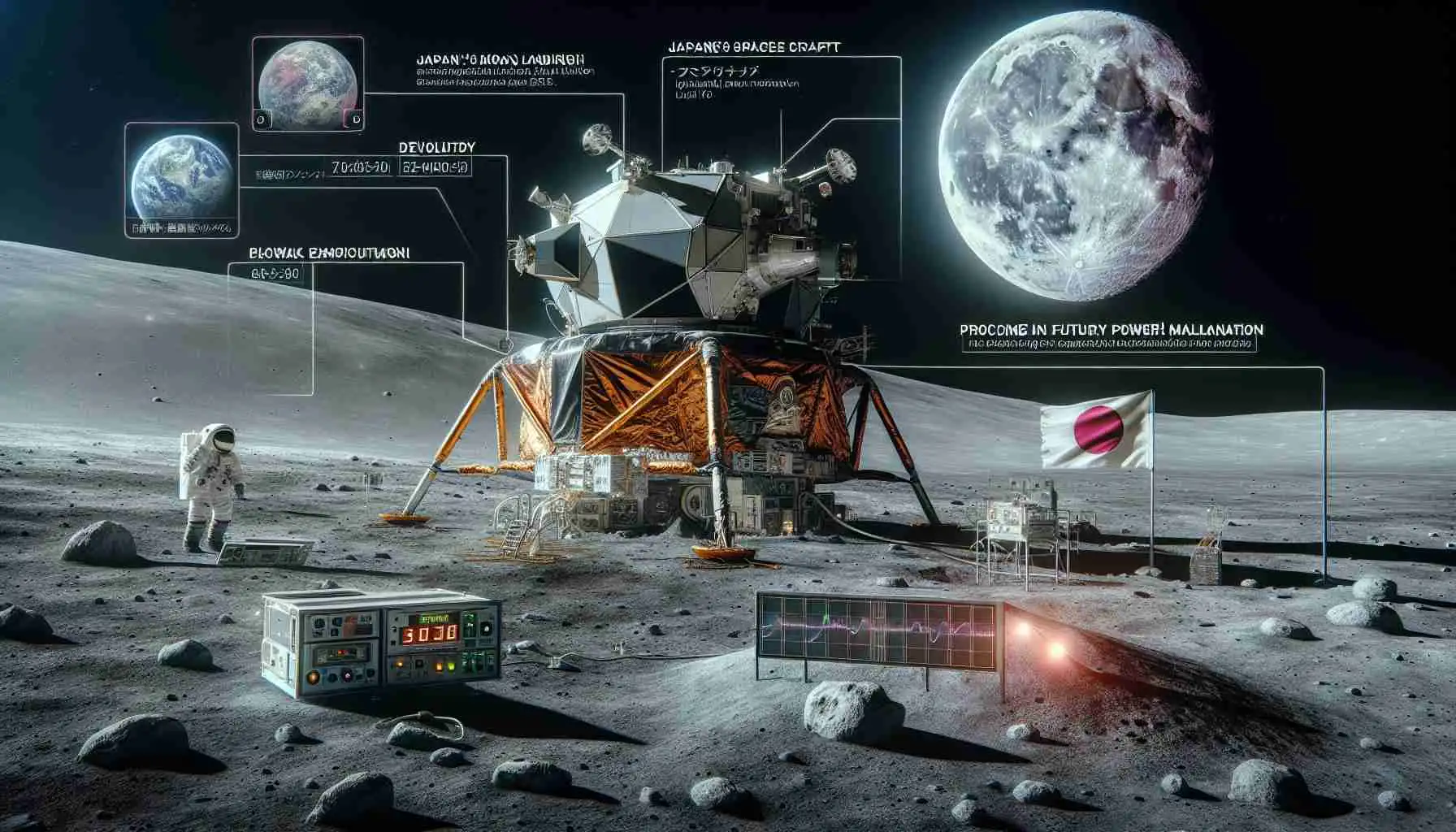Japan Moon Landing Mission Power Issue Future Exploration
Japan made history by landing its spacecraft, SLIM, on the moon, but faced a power issue with the solar panels.
Japan has achieved a groundbreaking feat by successfully landing its spacecraft, the Smart Lander for Investigating Moon (SLIM), on the moon's surface, making it the fifth country to accomplish a soft landing on the lunar landscape. However, a power issue arose after the landing when the solar panels on SLIM failed to generate electricity, potentially affecting the continuation of the mission.
The Japan Aerospace Exploration Agency (JAXA) stated that the solar panels may not have been correctly aligned, resulting in their inability to capture sunlight effectively. Despite this setback, the team at JAXA transferred the probe's data back to Earth using its limited battery life and is hoping for a change in the sunlight's angle that could revive the solar panels' functions.
SLIM was designed as a "moon sniper" to land within a remarkable 100-meter accuracy of its designated target, a significant improvement compared to the conventional accuracy of several kilometers. This precision landing technology could prove to be a valuable tool for future exploration, specifically in the hilly moon poles that are believed to harbor resources like oxygen, fuel, and water.
Despite the power issue, the success of SLIM's landing and the deployment of two mini-probes - a hopping vehicle and a compact rover - provide promising insights for the future of lunar exploration. The ability of SLIM to navigate using its onboard camera and match images with existing satellite photos showcases innovative vision-based navigation techniques.
Japan's ambitions in space have been growing, with partnerships with the United States and a vision to send an astronaut to the moon in the coming years. However, the country has recently faced setbacks in rocket development, including a launch failure in March, causing delays in its space missions.
While the power issue presents a challenge for JAXA, the overall achievement of the mission highlights Japan's dedication to space exploration and positions the country as a significant player in the field. The valuable data collected from SLIM's landing and subsequent operations will contribute to the ongoing efforts of humanity to unravel the mysteries of the moon and pave the way for future lunar missions.
1. SLIM stands for Smart Lander for Investigating Moon, which is a spacecraft deployed by Japan for lunar exploration.
2. The successful landing of SLIM marks Japan as the fifth country to achieve a soft landing on the moon. It demonstrates Japan's capabilities in space exploration and positions the country as a significant player in the field.
3. The solar panels on SLIM failed to generate electricity, potentially affecting the continuation of the mission.
4. The solar panels might not have been correctly aligned, resulting in their inability to capture sunlight effectively.
5. JAXA transferred the probe's data back to Earth using its limited battery life and is hoping for a change in the sunlight's angle that could revive the solar panels' functions.
6. SLIM's precision landing technology allows it to land within a remarkable 100-meter accuracy of its designated target, which is a significant improvement compared to the conventional accuracy of several kilometers.
7. SLIM's precision landing technology could prove valuable for future exploration, especially in the hilly moon poles that are believed to harbor resources like oxygen, fuel, and water.
8. In addition to the landing, SLIM also successfully deployed two mini-probes - a hopping vehicle and a compact rover. These deployments provide promising insights for the future of lunar exploration.
9. SLIM uses vision-based navigation techniques, where it matches images taken by its onboard camera with existing satellite photos to navigate.
10. Japan aims to send an astronaut to the moon in the coming years and has been growing its partnerships with the United States in space exploration.












Comments on Japan Moon Landing Mission Power Issue Future Exploration